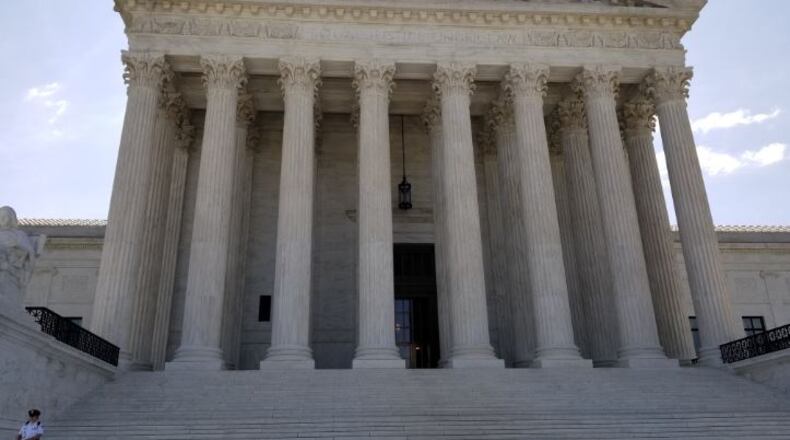Originally, the Bill of Rights was intended only to be applied to the federal government - but over time, the courts have ruled that it also applies to the states, and this was the first time the U.S. Supreme Court took that step when it comes to the issue of police and civil seizures.
After #SCOTUS's Timbs ruling, only a few parts of the Bill of Rights still don't apply to states:
— Steve Vladeck (@steve_vladeck) February 20, 2019
The Third Amendment
The Fifth Amendment's Grand Jury Indictment Clause
The Sixth Amendment's Vicinage Clause
The Sixth Amendment's unanimous jury requirement
The Seventh Amendment
“For good reason, the protection against excessive fines has been a constant shield throughout Anglo-American history," Ginsburg wrote. "Exorbitant tolls undermine other constitutional liberties."
At issue was a Land Rover SUV that Tyson Timbs had purchased before his arrest, with money from an insurance policy after the death of his father.
Under Indiana guidelines, the maximum monetary fine which could be levied against Timbs for his crime of dealing in a controlled substance was $10,000 - but the car was worth more than four times that amount.
Breaking: Supreme Court rules 9-0 that the 8th Amendment's protections against excessive fines and fees is incorporated to the states, in case of Indiana man whose Land Rover was seized through asset forfeiture https://t.co/9tQ0iKJ6Le
— CJ Ciaramella (@cjciaramella) February 20, 2019
Reaction was swift in favor of the ruling, as the NAACP Legal Defense Fund labeled it, “A huge victory for criminal justice reform.”
About the Author
